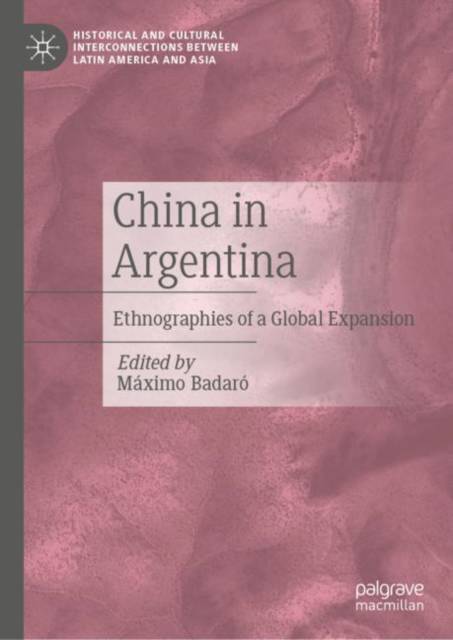
- Afhalen na 1 uur in een winkel met voorraad
- Gratis thuislevering in België vanaf € 30
- Ruim aanbod met 7 miljoen producten
- Afhalen na 1 uur in een winkel met voorraad
- Gratis thuislevering in België vanaf € 30
- Ruim aanbod met 7 miljoen producten
Zoeken
China in Argentina
Ethnographies of a Global Expansion
€ 137,45
+ 274 punten
Omschrijving
This is the first book to shed light on the growing presence, influence and expansion of China in the daily life of Argentina. While most previous academic studies focus on the geopolitical and macroeconomics dimensions of the relations between Argentina and China, this book shows at a micro-social level the multiple facets of the economic, political and social influence of China in Argentina. The book presents ethnographic studies of encounters of actors and negotiation of identities from Argentina and China in companies, schools, restaurants, hospitals, districts, public and private institutions in Argentina. Themes discussed in the ethnographies include: identity struggle and strategic uses of culture in Buenos Aires' s Chinatown; teaching Chinese as the first foreign language or teaching it as a heritage language in a bilingual school; the contested production of images of Chinese authenticity in Chinese restaurants; the connections and contestations between so-called "Western medicine" and so-called "Chinese Traditional Medicine"; and the conflictive relations between Chinese expatriate bosses of Chinese state-owned enterprises and their Argentinean employees.
Specificaties
Betrokkenen
- Uitgeverij:
Inhoud
- Aantal bladzijden:
- 172
- Taal:
- Engels
- Reeks:
Eigenschappen
- Productcode (EAN):
- 9783030924218
- Verschijningsdatum:
- 1/02/2022
- Uitvoering:
- Hardcover
- Formaat:
- Genaaid
- Afmetingen:
- 148 mm x 210 mm
- Gewicht:
- 381 g

Alleen bij Standaard Boekhandel
+ 274 punten op je klantenkaart van Standaard Boekhandel
Beoordelingen
We publiceren alleen reviews die voldoen aan de voorwaarden voor reviews. Bekijk onze voorwaarden voor reviews.










